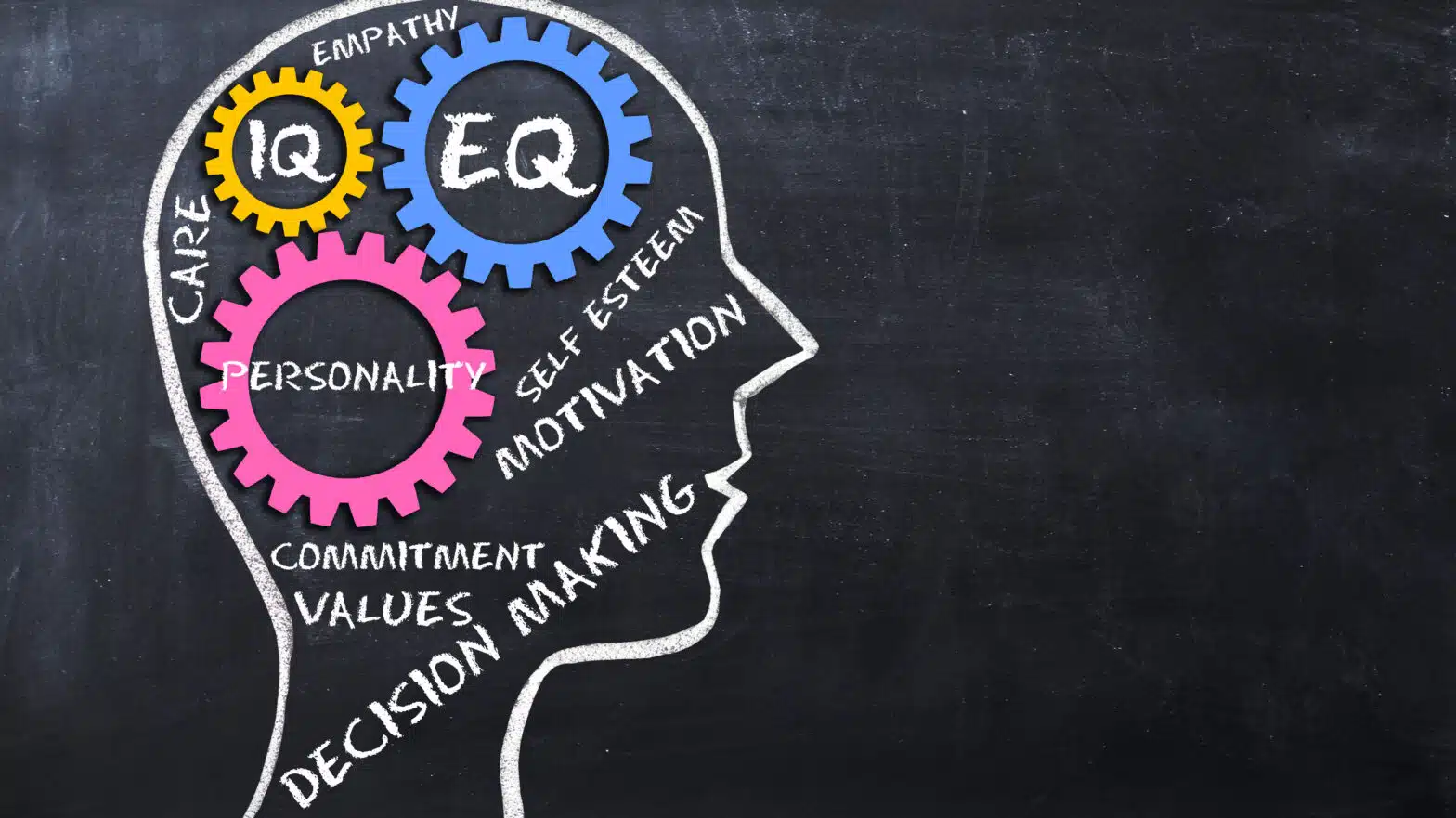Does IQ And Intelligence Play a Role In Addiction?
Studies have shown correlations between higher intelligence and increased experimentation with drugs. Various individual, social, and environmental factors interact to influence drug use behaviors among all people, including those with above average intelligence.

According to studies, there is a correlation between higher intelligence and increased experimentation with drugs.
The relationship between intelligence and drug abuse is complex and is influenced by a range of socioeconomic, psychological, and neurobiological factors.
Defining Intelligence
Intelligence is a complex construct that encompasses a wide range of cognitive abilities and capacities.
Intelligence can be defined as the capacity of an individual to:
- comprehend
- reason
- learn from experience
- adapt to new situations
- solve problems effectively
It encompasses a wide range of cognitive abilities, including:
- memory
- attention
- perception
- language
- logical reasoning
- abstract thinking
Additionally, intelligence involves emotional awareness and regulation, enabling individuals to understand and manage their own emotions as well as those of others.
It also encompasses practical skills and knowledge that facilitate successful navigation of everyday life challenges.
Intelligence is not a static trait but rather a dynamic attribute that can be developed and refined through education, experiences, and deliberate practice.
Intelligence And Risk-Taking Behavior
The relationship between intelligence and risk-taking behavior is influenced by various factors.
Intelligent people may seek novel experiences and intellectual stimulation, prompting them to take greater risks in certain situations.
Moreover, factors such as personality traits, environmental influences, and cultural norms play a role in shaping risk-taking tendencies among intelligent people.
As a result, studies have shown that intelligence and substance abuse have a positive relationship, meaning intelligent individuals are more likely to abuse drugs.
Further support of these findings show that children with an IQ above 110 are much more likely to use psychoactive drugs as adults when compared to children of average intelligence.
Socioeconomic Factors That Contribute To This Trend
Socioeconomic factors can influence drug use among intelligent individuals in several ways.
People from higher socioeconomic backgrounds may have greater access to resources, including the disposable income and social connections that can facilitate access to drugs.
Additionally, the pressures and expectations associated with socioeconomic success may lead intelligent individuals to seek drugs as a coping mechanism for stress, anxiety, or the fear of failure.
Societal norms and peer influences within affluent circles may also contribute to the normalization of drug use, making it more likely for intelligent individuals to experiment with substances.
Overall, while intelligence itself does not predispose individuals to drug use, socioeconomic factors can intersect with intelligence to influence patterns of drug abuse.
Psychological Factors That Contribute To This Trend
People with higher IQs may have a heightened curiosity and openness to new experiences, including experimenting with drugs.
They may also face stressors related to high expectations, perfectionism, or the pressure to succeed, causing them to turn to drugs as a coping mechanism to alleviate stress.
While intelligence is often associated with better decision-making skills, smart individuals may possess a propensity for risk-taking behavior.
They may be more inclined to take calculated risks or engage in sensation-seeking behaviors, which can include experimenting with drugs.
Finally, people with a high IQ may experience boredom, particularly if their environment fails to provide sufficient mental challenges. In such cases, they may seek drugs to induce excitement.
Neurobiological Factors That May Increase Drug Abuse
Neurobiological factors can explain some of the reasons why intelligent individuals may be more prone to drug use.
Reward System Sensitivity
People with high IQ scores may have brains that are more sensitive to rewards.
This heightened sensitivity could lead them to seek out novel experiences, including those associated with drug use, as a way to stimulate their reward pathways.
Neurotransmitter Function
Variations in neurotransmitter function, such as dopamine, serotonin, and endorphins, can influence an individual’s response to drugs.
Intelligent individuals may have neurochemical profiles that make them more susceptible to the reinforcing effects of drugs, increasing their likelihood of use.
Genetic Predisposition
Genetic factors play a significant role in both intelligence and susceptibility to drug addiction.
Certain genetic variations associated with intelligence may also influence an individual’s vulnerability to alcohol abuse or drug addiction.
Neuroplasticity
Intelligent individuals may have brains that are more adaptable to environmental stimuli.
This neuroplasticity could make them more likely to experience the reinforcing effects of drugs and potentially develop substance use disorders more rapidly.
Stress Response
People who score high on IQ tests may experience increased levels of stress due to academic or professional demands.
Chronic stress can dysregulate the brain’s stress response systems, making individuals more susceptible to self-medicating with drugs as a way to cope with stress.
Challenging The Stereotype Of The “Smart Drug User”
Mass media repeatedly regurgitates the stereotype of the “smart drug user.” These characters are depicted as highly intelligent people who are able to engage in drug use with no apparent risk.
These fictional people are able to manage the effects of drugs and alcohol without developing dependence. In fact, their substance abuse is often shown as a tool to support their intellectual gifts.
The reality is that no level of intelligence makes a person immune to the effects of substance abuse. No one’s brain chemistry is unaffected by the repeated use of drugs and alcohol.
While some people do manage their substance use, everyone who abuses drugs or alcohol is at risk of developing dependence and addiction.
Learn About Addiction Treatment In Massachusetts
If you or a loved one is experiencing drug addiction in Massachusetts, treatment programs can help. Contact Spring Hill today to speak to our specialists.
- American Economic Association (AEA) https://pubs.aeaweb.org/doi/pdfplus/10.1257/jep.32.2.115
- National Library of Medicine: PubMed https://pubmed.ncbi.nlm.nih.gov/30203932/
- National Library of Medicine: PubMed https://www.ncbi.nlm.nih.gov/pmc/articles/PMC3410945/
- National Library of Medicine: PubMed https://www.ncbi.nlm.nih.gov/pmc/articles/PMC2799035/
- National Library of Medicine: PubMed https://www.ncbi.nlm.nih.gov/pmc/articles/PMC3905527/
- National Library of Medicine: PubMed https://pubmed.ncbi.nlm.nih.gov/22776465/

